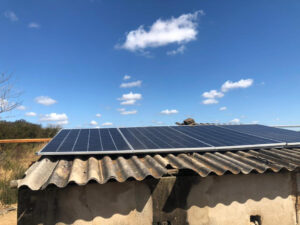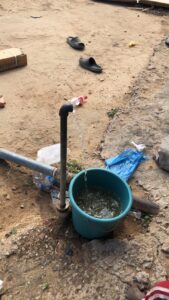Godfrey Mtimba
Masvingo–Persons with disabilities (PWDs) in rural Masvingo are worried by the increasing hardships they face due to climate change, including severe food shortages caused by erratic rainfall patterns in recent years.
PWDs who spoke to NewsHub decried continued disruptions to agricultural production, their primary source of sustenance, leading to worsening food insecurity and economic instability.
Wheelchair user, Stella Moyo from Ward 15 in Mwenezi, said she and her family were struggling to access food on a regular basis.
“We sometimes go for a day without food because (our harvests are now poor) due to erratic rains.
“We are now surviving on handouts, which are hardly coming by, and because of our conditions, we can’t do menial jobs to fend for our families,” Moyo said.
The dire situation in Mwenezi is also typical of other rural districts in the province, among them Gutu, Chiredzi, Zaka, Chivi and Bikita, where many households are facing hunger due to recurrent poor harvests.
This has forced some villagers to migrate to urban Masvingo and nearby commercial hubs to beg for food and money in the streets.
“We can’t continue to live in the rural areas. We have no option but to come here to the city to beg for food and money to survive,” said Kudakwashe Marozva, a visually impaired resident from Bikita.
The Disability Amalgamated Community Trust (DACT) said its members were also struggling to access water as a result of the effects of climate change.
The organisation is implementing projects to alleviate water challenges.


“Persons with disabilities are negatively affected by climate change in the rural areas. Water sources like community wells have dried up, forcing persons with disabilities to travel longer distances for water.
“The paths leading to alternative water sources are narrow and sandy, rendering it difficult for those using wheelchairs,” said DACT director, Henry Chivhanga.
Chivhanga added that these challenges were infringing on the right to water as guaranteed under Section 77 of Zimbabwe’s constitution, which affirms every person’s right to “safe, clean and potable water.”
He urged the government to take reasonable measures to promote access to potable water, including investing in infrastructure.
“To my knowledge, government has no projects currently running to empower persons with disabilities in climate change-related issues,” Chivhanga said.
However, the permanent secretary for Masvingo Provincial Affairs and Devolution, Addmore Pazvakavambwa, insisted the government was implementing several initiatives to cushion PWDs against the negative impacts of climate change.
“We have lined up many programmes for PWDs. We gave one group land to practise irrigation agriculture, and they are doing well.
“They are…donating produce such as cabbages, tomatoes and chickens to institutions like Copota School for the Blind and Ngomahuru Psychiatric Hospital,” Pazvakavambwa said.
He added that government had drilled solar-powered boreholes to improve water access for PWDs and support irrigation schemes across the province.
Despite these interventions, disability rights groups insist that limited access to capital, resources for income-generating projects and employment opportunities continue to pose major challenges for persons with disabilities.
Climate-related disasters such as floods and storms are particularly devastating for people with disabilities who may face difficulties evacuating or accessing emergency services.
The negative effects of climate change have also increased the burden of care and exposed the lack of inclusive rural infrastructure.
As part of its adaptation and income mitigation strategy, DACT has embraced climate-smart agriculture and renewable energy technologies.
“Meanwhile, we have bought drip liners and other accessories for us to change from overhead sprinklers to drip irrigation,” Chivhanga said.
Disability rights advocates have urged the government to strengthen early warning systems, inclusive disaster response mechanisms, accessible infrastructure and economic empowerment programmes to help mitigate the impact of climate change on persons with disabilities.

